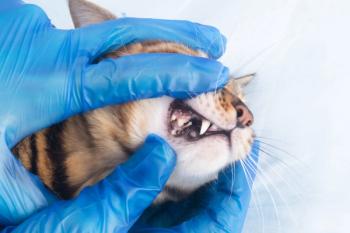
ASPCA works to limit pet poisonings
Urbana, Ill. -- Veterinarians see instances of pet poisonings every day that are entirely preventable.
Urbana, Ill.
-- Veterinarians see instances of pet poisonings every day that are entirely preventable.
From ingested human medication to exposure to household cleaners to eating household plants, pets get into just about everything.
But the American Society for the Prevention of Cruelty to Animals (ASPCA) Animal Poison Control Center (APCC) hopes to stop, or at least greatly reduce, the number of poisonings each year.
APCC tracked the number of calls it received in 2008 to determine the top 10 poisons to pets. The agency, located in Urbana, IL, handled more than 140,000 cases of pets exposed to toxic substances throughout the year.
The following is a list of those substances.
Human medications
The ASPCA managed more than 50,000 calls involving prescription and over-the-counter drugs, such as painkillers, cold medications, antidepressants and dietary supplements.
Insecticides
Toxicologists fielded more than 31,000 calls related to insecticides with the most common incidents involving the misuse of flea and tick products.
People food
Grapes, raisins, avocado, certain citrus fruits and other food accounted for more than 15,000 cases in 2008. One of the worst offenders was chocolate.
Rodenticides
The ASPCA received about 8,000 calls about pets that had accidentally ingested rat and mouse poisons.
Veterinary medications
The ASPCA managed another 8,000 cases involving animal-related preparations such as non-steroidal anti-inflammatory drugs, heartworm preventatives, de-wormers, antibiotics, vaccines and nutritional supplements.
Plants
Common houseplants were the subject of nearly 8,000 calls to the APCC. Varieties such as azalea, rhododendron, sago palm, lilies, kalanchoe and schefflera were common culprits.
Chemical hazards
About 5,500 cases of pet exposure to chemical hazards were reported. A category on the rise, chemical hazards-found in ethylene glycol antifreeze, paint thinner, drain cleaners and pool/spa chemicals-formed a substantial danger.
Household cleaners
The APCC received more than 3,200 calls related to household cleaners.
Heavy metals
Heavy metals, such as lead, zinc and mercury, accounted for more than 3,000 cases.
Fertilizer
More than 2,000 calls were received relating to fertilizer exposure.
Newsletter
From exam room tips to practice management insights, get trusted veterinary news delivered straight to your inbox—subscribe to dvm360.



